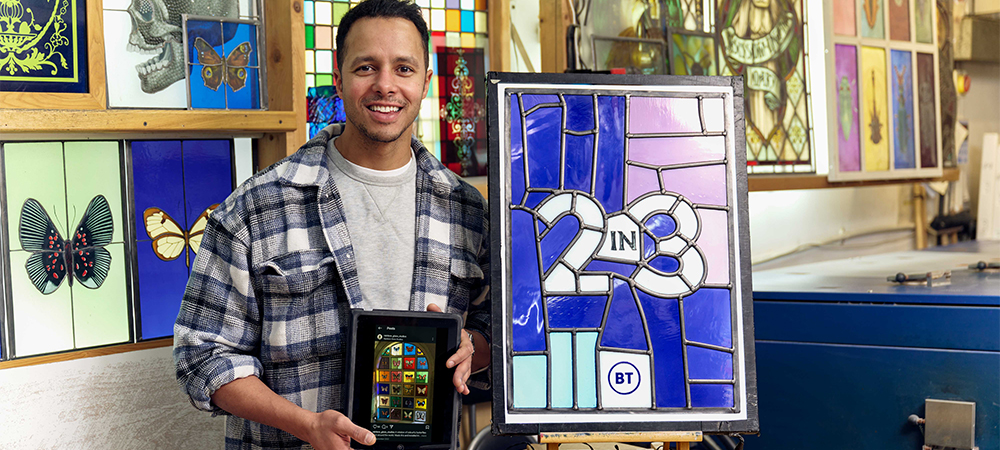Will Kirk, star of hit BBC show The Repair Shop, has joined forces with BT to encourage the UK’s much-loved heritage businesses to go digital – as new research shows two in three small firms (67%) say technology is keeping their traditions alive.
The woodwork expert and Heritage Crafts ambassador, famous for bringing heirlooms back to life, wants to show how moving from analogue to digital can preserve traditional businesses’ historic ways of working, enable them to reach new audiences and make it easier to manage their operations. The call comes as four-fifths (81%) of businesses started before 1900 say tech has helped to preserve their traditions.
BT’s research reveals that three-quarters of small business leaders (77%) believe new technology has ensured their company’s survival. The majority – nine in 10 (89%) – say digital tech has opened new revenue streams, 80% feel it has given them a competitive edge, while 79% say it has helped them connect with new customers.
BT’s study shows that the UK’s small business community has been investing in technology this year, with most seizing the opportunity to boost their networks and digital tools in 2024. Four in five small firms (78%) say they have introduced new technology in the last 12 months. The top investment was a new website (50%), followed by increased cybersecurity (48%) and social media (45%). Two in five (40%) describe their small business as being a tech company, or one driven by advanced technology such as AI, robotics or data analytics.
However, a fifth of the UK’s small and medium firms (22%) – equivalent to more than a million – still think of themselves as an ‘analogue’ company, using technologies like traditional landlines, paper-based contracts and physical filing systems to do business. For example, one in six (16%) still use fax machines.
Will Kirk said: “Restoring the crafts and artistry of the past is my job, so I know how important it is to preserve tradition for the next generations. Embracing digital tech can help small businesses with decades of history reach new customers, streamline services and stay competitive. It doesn’t mean replacing the heart of what makes heritage businesses unique – it’s about giving them the tools they need to hold onto this heritage in an increasingly-digital world.”
BT’s research comes as the UK is undergoing a once-in-a-generation tech upgrade, moving to digital networks as the ageing copper-based Public Switched Telephone Network (PSTN), approaches retirement after more than four decades in operation. The switchover from the PSTN to digital connectivity is a move to future-proof the UK’s infrastructure, with the old network more prone to faults and outages, putting businesses at risk of losing connection to critical services.




